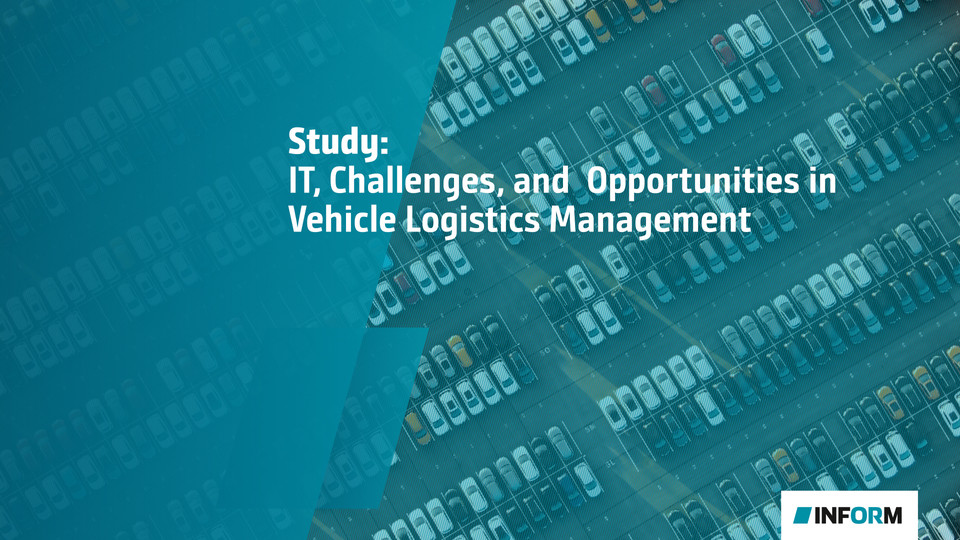IT, Challenges, and Opportunities in Vehicle Logistics Management
about the study
Digitalization is changing the automotive industry. Supply chains and production processes are becoming increasingly complex. Customers expect a high degree of individualization, which has caused a rise in the number of offered variants. Short innovation cycles challenge the flexibility and adaptability of logistics. Automobile logistics companies are also faced with the challenge of processing large amounts of data and using that data effectively. Efficient IT helps control this complexity and increase transparency along the process chain.
The present study „IT, Challenges, and Opportunities in Vehicle Logistics Management“ analyses the importance of software for controlling vehicle logistics and the delivery processes of automotive manufacturers and logistics service providers. The Institut für Operations Research und Management GmbH (INFORM) carried out this study to determine the current status and potential for optimization by asking 103 international companies from the automotive logistics sector about their experience with specialized IT systems. Based on the challenges in the industry and the ever-increasing vehicle turnover, the study shows which functions IT systems need to control in vehicle logistics and how much modernization and investment is required in this field.
Context automotive industry: Rising production figures, increasing internationalization
- In 2017, German manufacturers produced 16.4 million vehicles, with nearly 20% of the global market share.
- German companies are expanding overseas production, reaching 10.8 million cars abroad, while domestic production decreased to 5.6 million units.
- Adapting to new production processes and value chains for hybrid and electric vehicles presents logistical challenges in the international automotive industry. China and India are key growth markets.
Context IT: Complex processes
- Industry 4.0 demands efficient IT systems that can manage complex processes, but integration into vehicle logistics is incomplete.
- The current landscape offers numerous digitalization drivers, such as clouds, apps, platforms, and mobile applications.
- Rising production and increased connectivity make integrating intelligent and efficient IT systems essential for the automotive industry's competitiveness.

